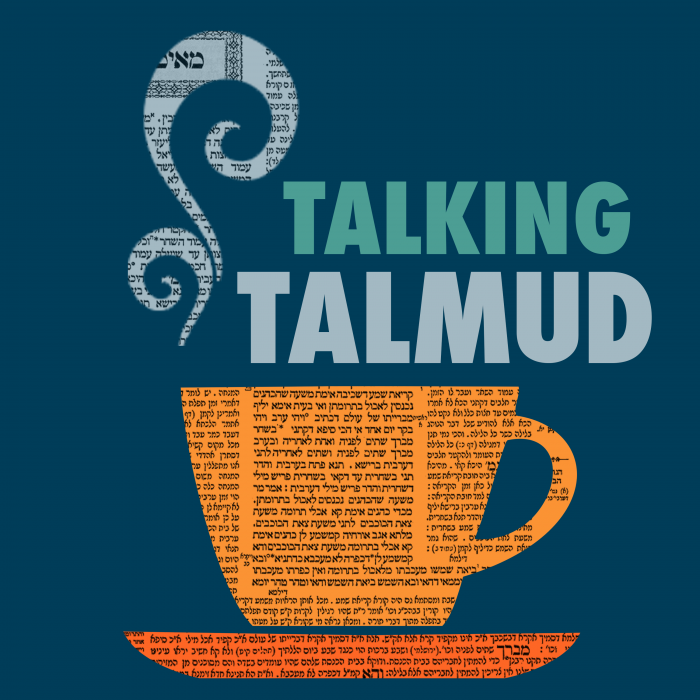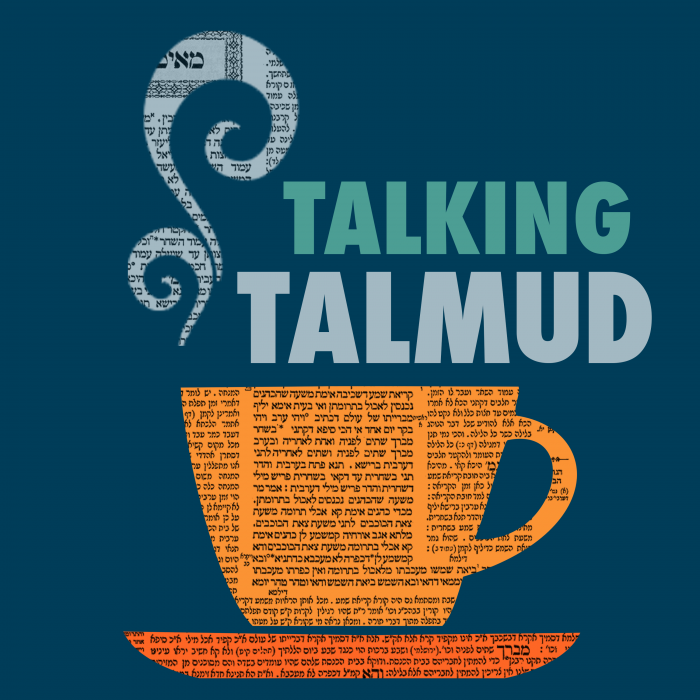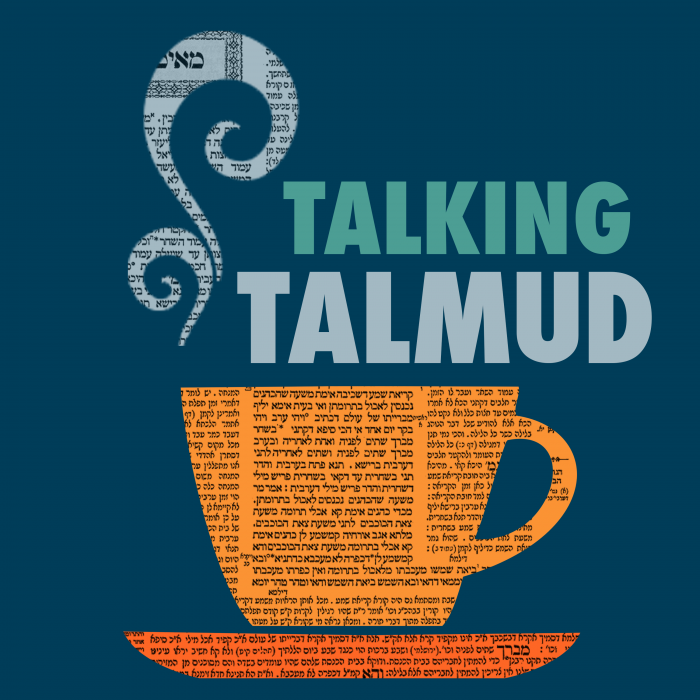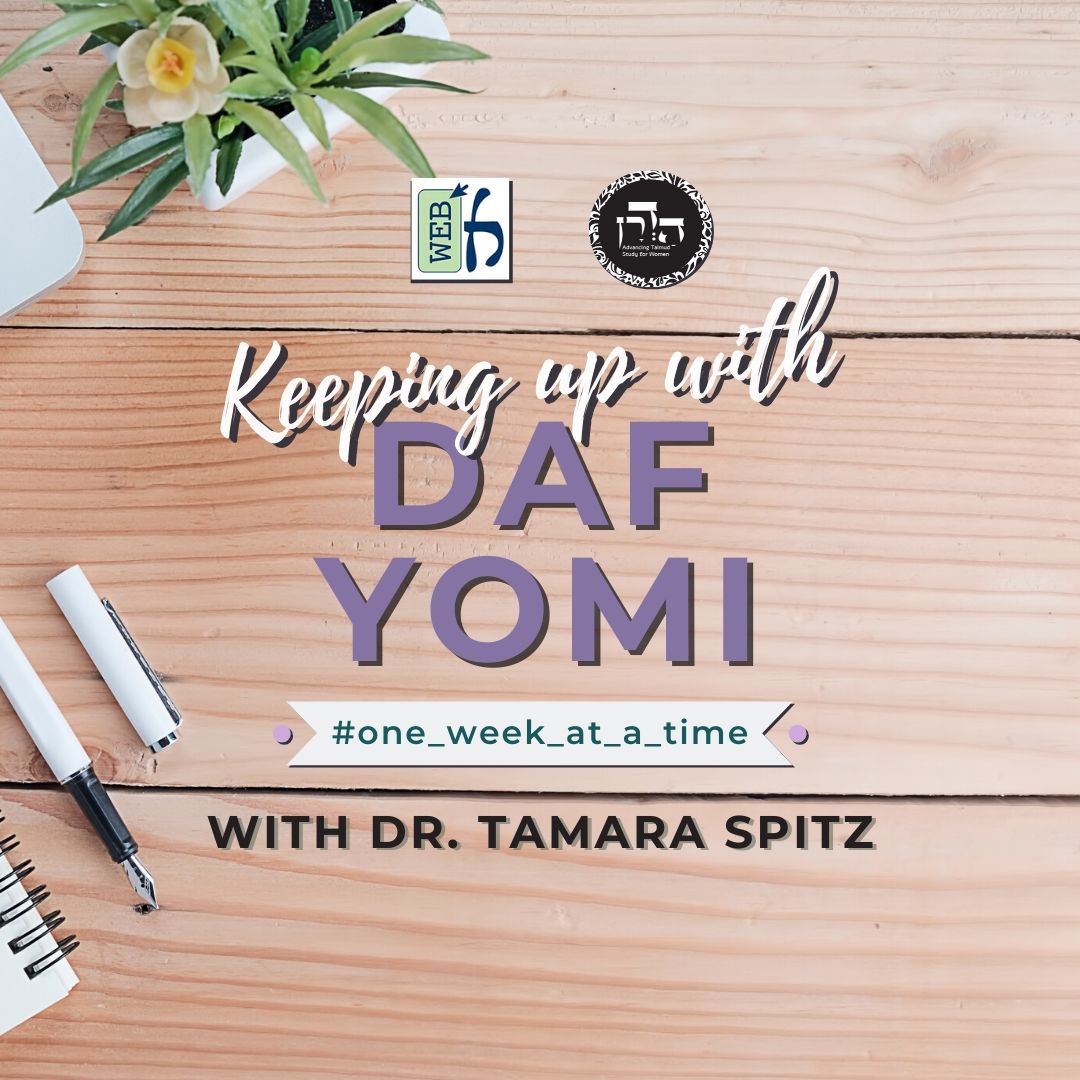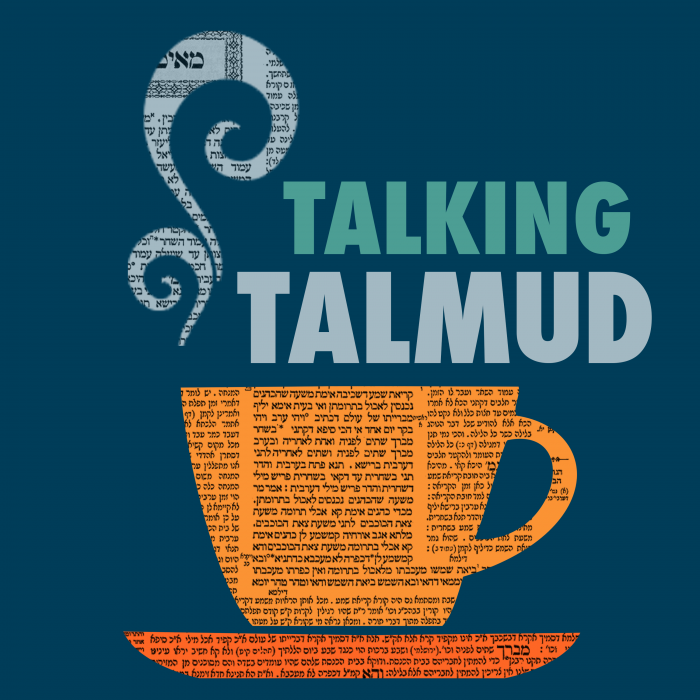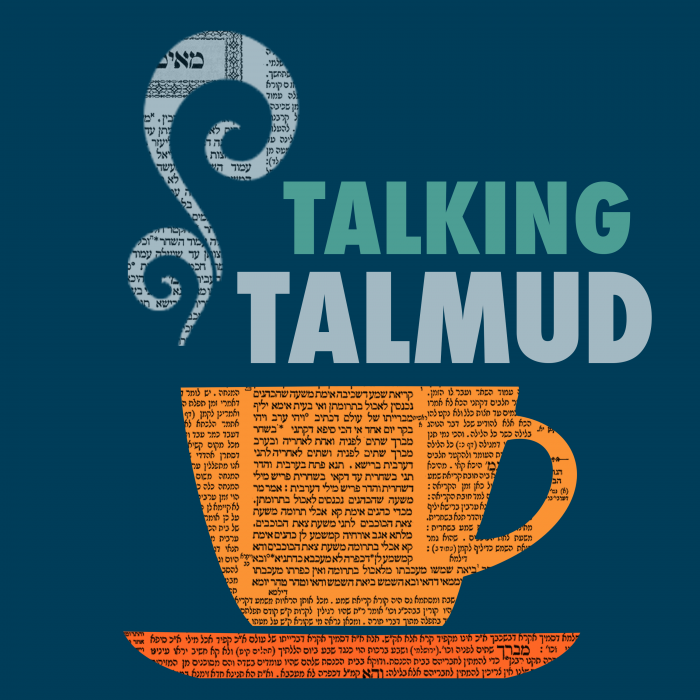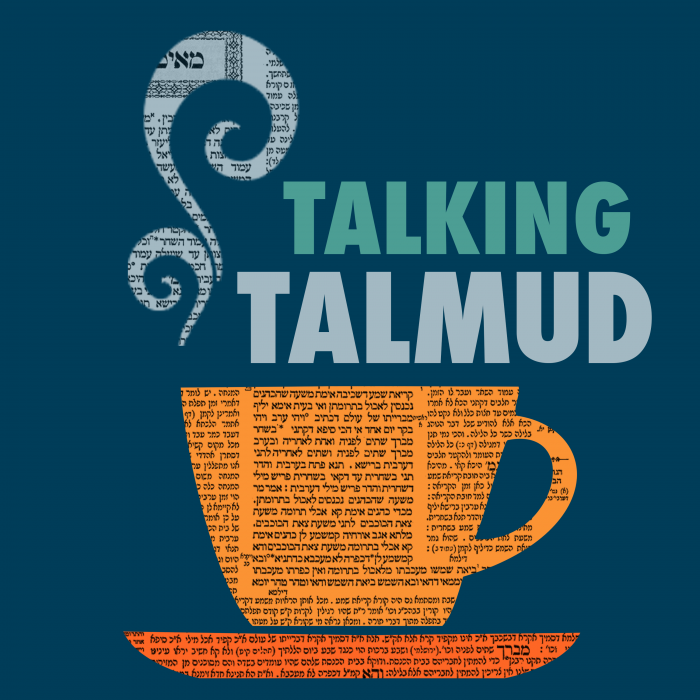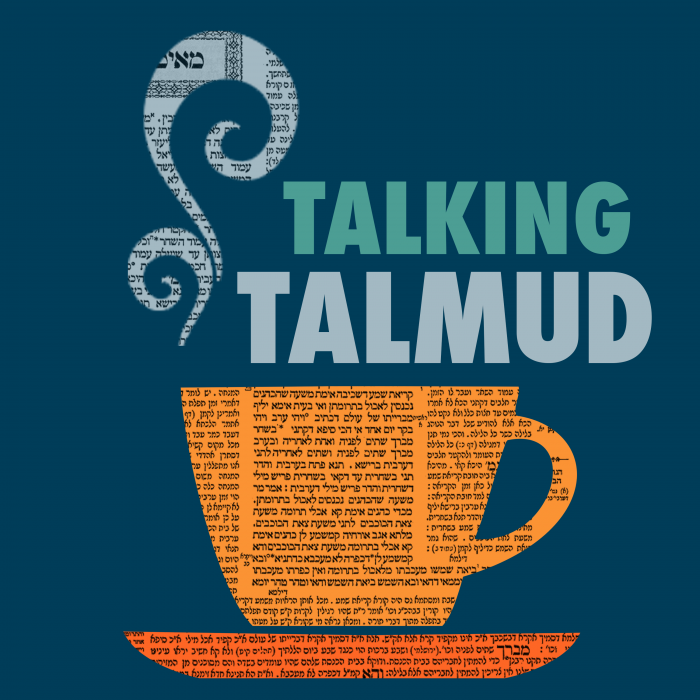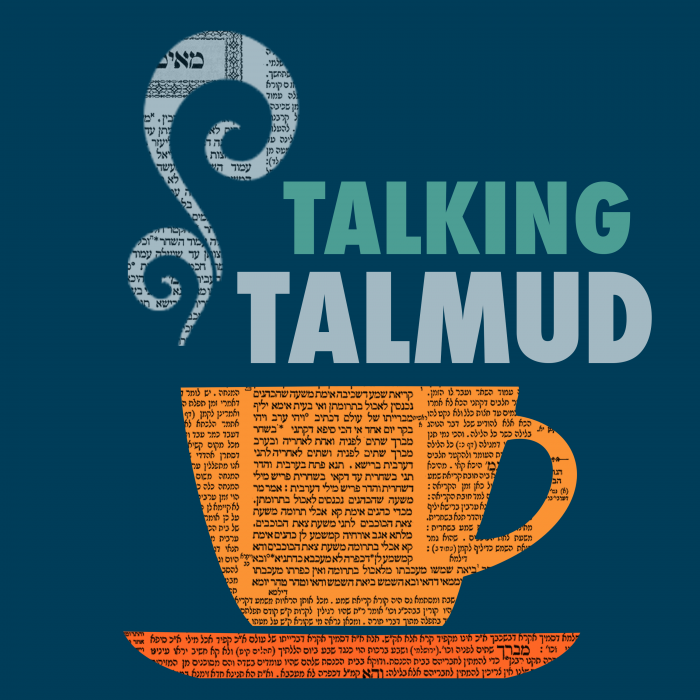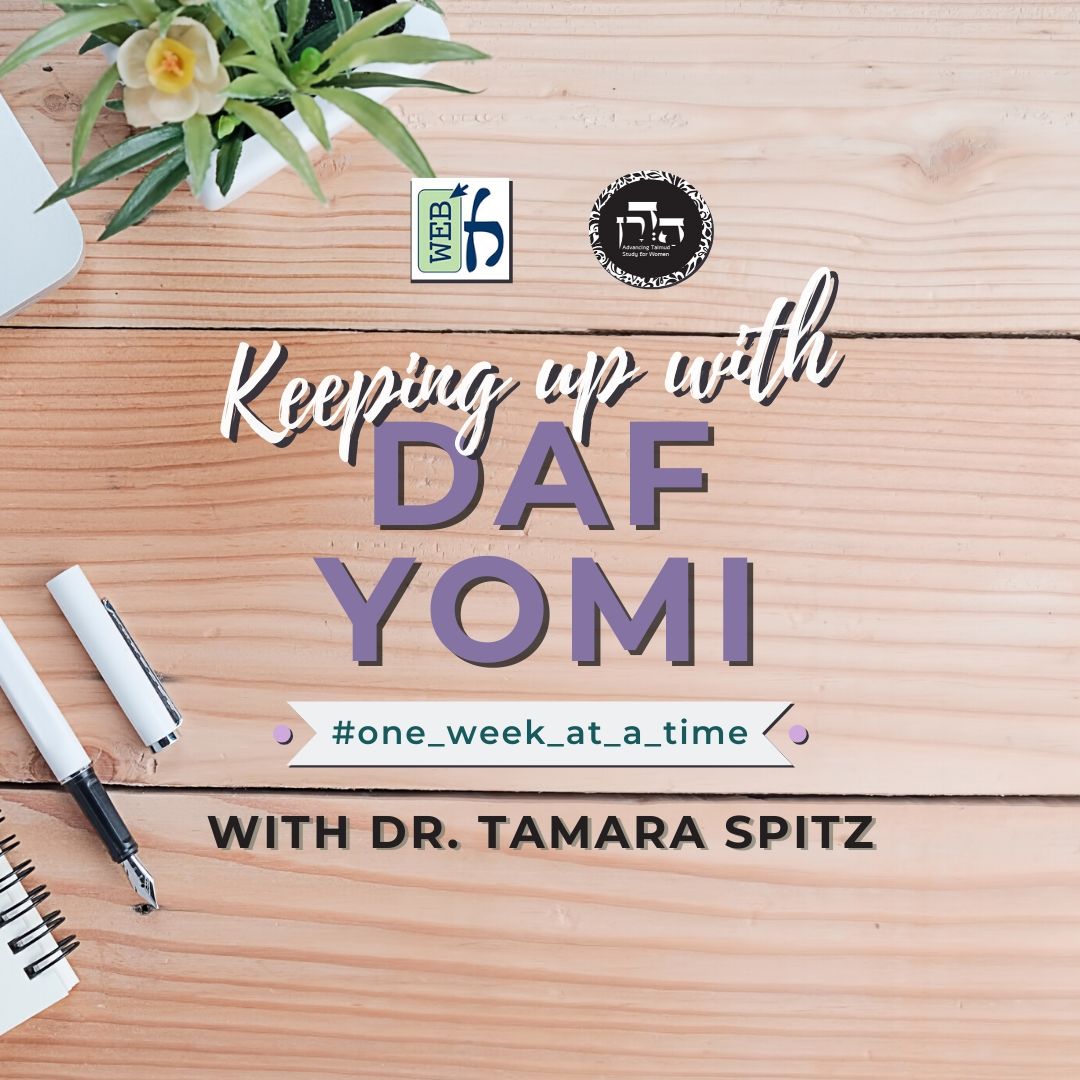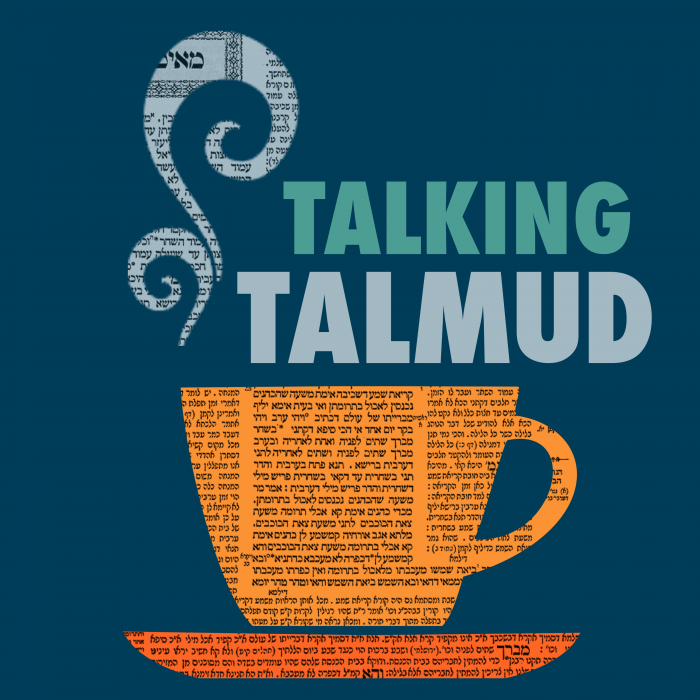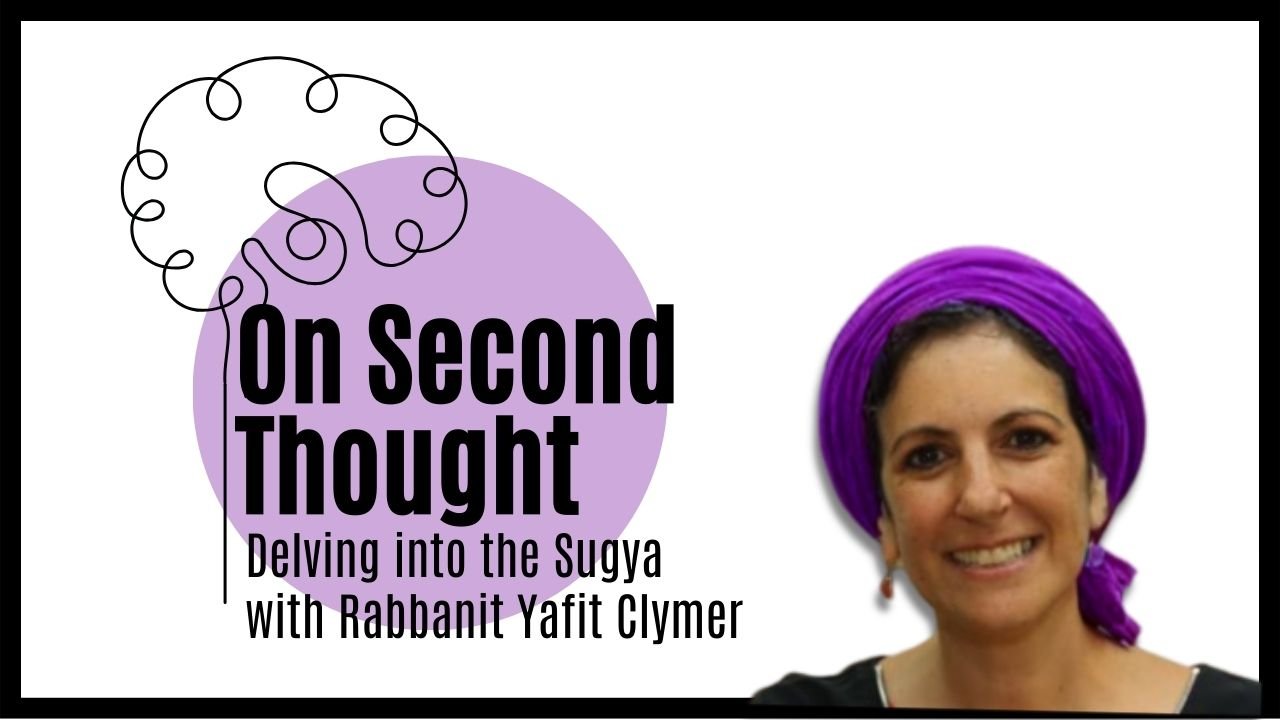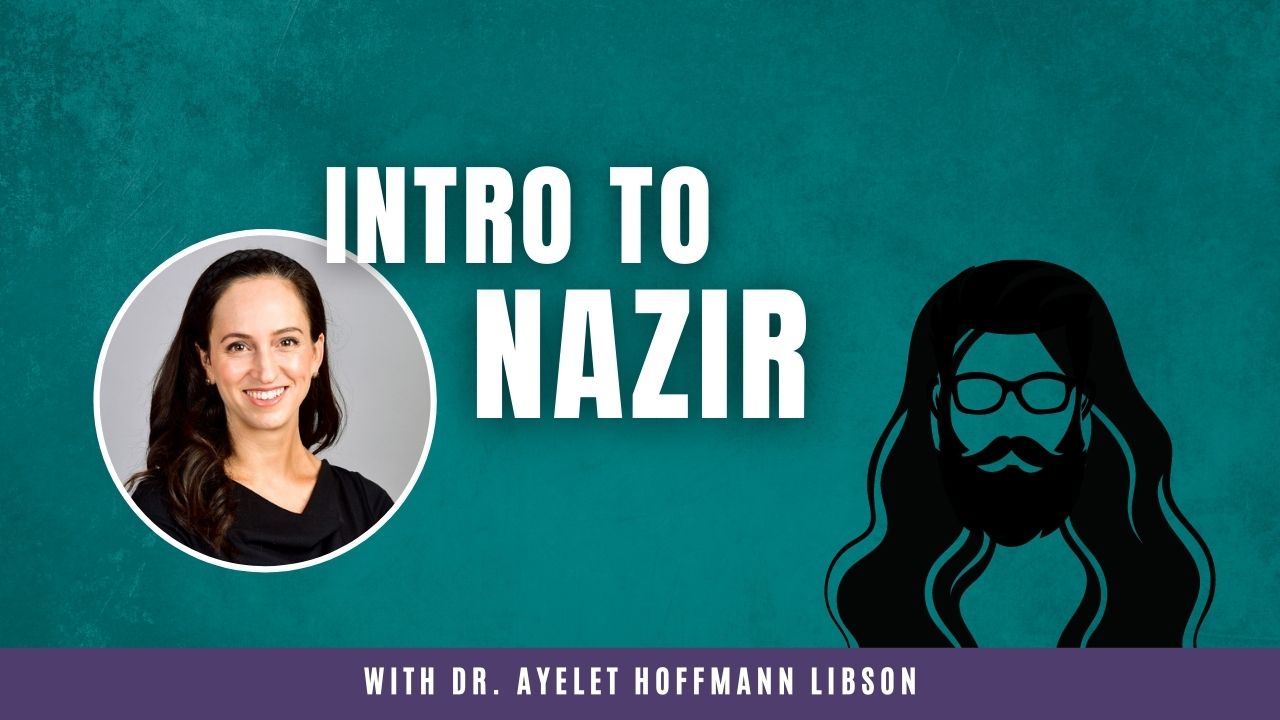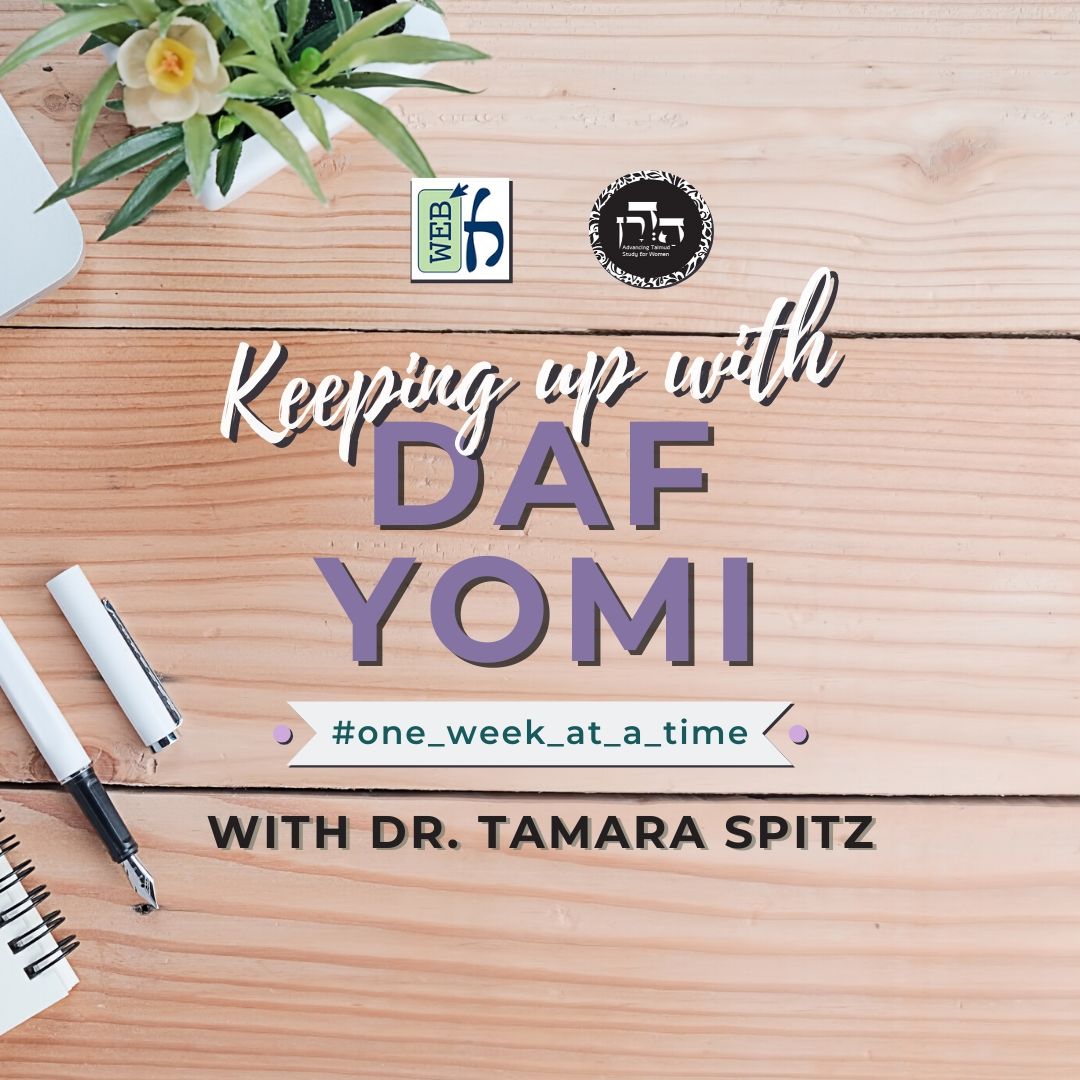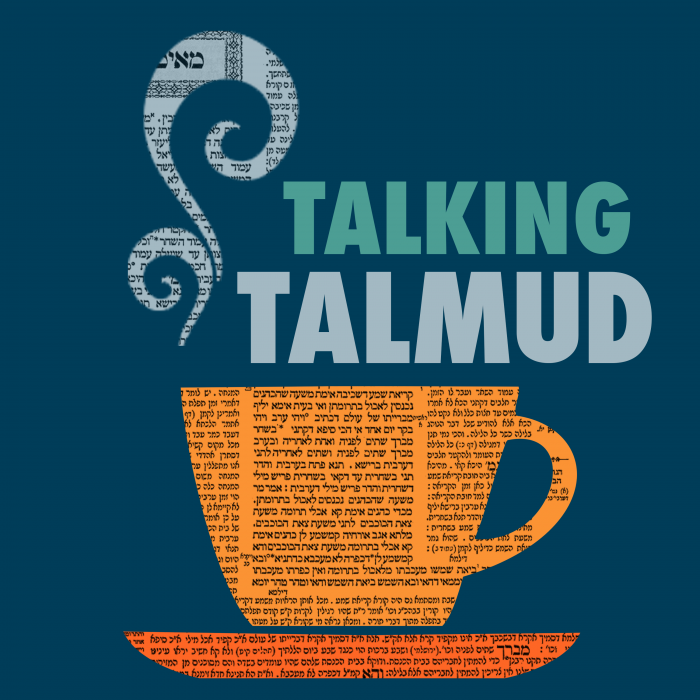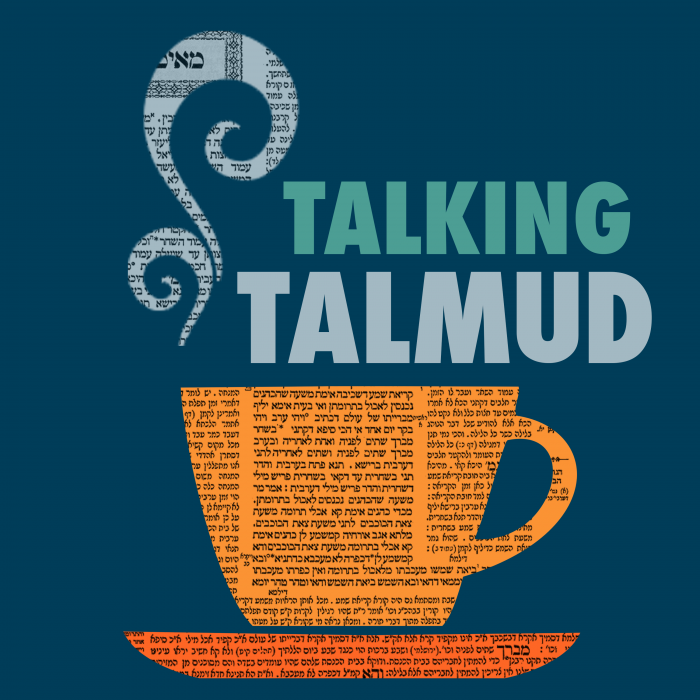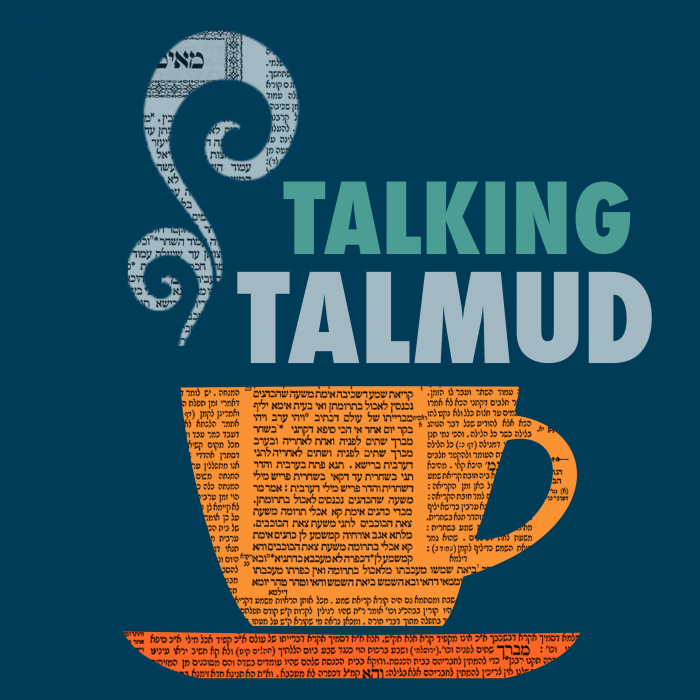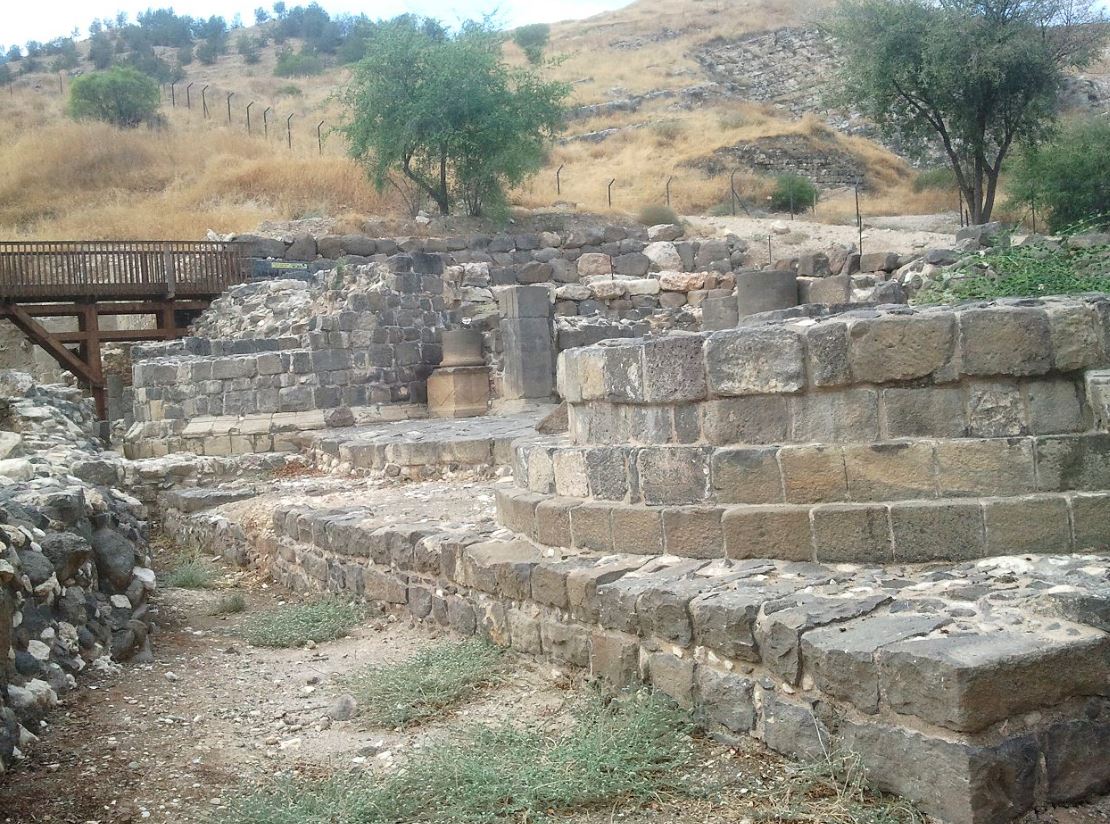The gemara resolves certain discrepancies in the Torah regarding numbers – two different totals of how many Levites there were, and how much money was collected from the half-shekels to build the mishkan. What is the law regarding a cow that gives birth to an animal that is more like a donkey – regarding firstborn and eating (is it kosher?). From where do we derive that the law for a firstborn donkey doesn’t apply to any other non-kosher animal?
This month’s learning is dedicated to the refuah shleima of our dear friend, Phyllis Hecht, גיטל פעשא בת מאשה רחל by all her many friends who love and admire her. Phyllis’ emuna, strength, and positivity are an inspiration.
Want to dedicate learning? Get started here:


Today’s daily daf tools:
This month’s learning is dedicated to the refuah shleima of our dear friend, Phyllis Hecht, גיטל פעשא בת מאשה רחל by all her many friends who love and admire her. Phyllis’ emuna, strength, and positivity are an inspiration.
Today’s daily daf tools:
Delve Deeper
Broaden your understanding of the topics on this daf with classes and podcasts from top women Talmud scholars.
New to Talmud?
Check out our resources designed to help you navigate a page of Talmud – and study at the pace, level and style that fits you.
The Hadran Women’s Tapestry
Meet the diverse women learning Gemara at Hadran and hear their stories.
Bekhorot 5
וּפָסְקוּ.
and then their sanctity ceased following the census.
בִּשְׁלָמָא רֵישׁ לָקִישׁ, כִּדְאָמַר טַעַם, אֶלָּא לְרַבִּי יוֹחָנָן — מַאי טַעְמָא?
The Gemara asks: Granted, according to Reish Lakish, who holds the firstborn were not sanctified following the census until they entered Eretz Yisrael, the reason is as he said, that it is written: “And it shall be when the Lord shall bring you into the land of the Canaanites…and you shall set apart all firstborn of the womb to the Lord” (Exodus 13:11–12). But according to Rabbi Yoḥanan, who holds that the firstborn continued to be sanctified following the census, what is the reason, i.e., the source, for his opinion?
אָמַר רַבִּי אֶלְעָזָר: רַבִּי יוֹחָנָן חֲזַאי בְּחֶילְמָא דְּמִילְּתָא מְעַלַּיְתָא אָמֵינָא, אָמַר קְרָא ״לִי יִהְיוּ״ — בַּהֲוָיָיתָן יְהוּ.
Rabbi Elazar said: I saw Rabbi Yoḥanan in a dream, which is a sign that I am saying a proper matter in explaining his opinion. The verse states: “For all the firstborn are Mine: On the day that I smote all the firstborn in the land of Egypt I sanctified to Me all the firstborn in Israel, both man and animal, Mine they shall be: I am the Lord” (Numbers 3:13). The additional phrase “Mine they shall be” indicates that they shall be, i.e., shall remain, in their current state of sanctity.
וְרַבִּי יוֹחָנָן, ״וְהָיָה כִּי יְבִיאֲךָ… וְהַעֲבַרְתָּ״ מַאי עָבֵיד לֵיהּ? הַהוּא מִיבְּעֵי לֵיהּ לְכִדְתָנָא דְּבֵי רַבִּי יִשְׁמָעֵאל: עֲשֵׂה מִצְוָה זוֹ שֶׁבִּשְׁבִילָהּ תִּיכָּנֵס לָאָרֶץ.
The Gemara asks: And as for Rabbi Yoḥanan, with regard to the verse “And it shall be when the Lord shall bring you…and you shall set apart,” what does he do with it? The Gemara answers: That expression is necessary to teach that which the tanna of the school of Rabbi Yishmael taught: Perform this mitzva on account of which you will be privilged to enter into Eretz Yisrael.
אֲמַר לֵיהּ רַב מָרְדֳּכַי לְרַב אָשֵׁי: אַתּוּן הָכִי מַתְנִיתוּ לַהּ, אֲנַן אִיפְּכָא מַתְנִינַן לַהּ, רַבִּי יוֹחָנָן אָמַר: לֹא קָדְשׁוּ בְּכוֹרוֹת בַּמִּדְבָּר, וְרֵישׁ לָקִישׁ אָמַר: קָדְשׁוּ בְּכוֹרוֹת בַּמִּדְבָּר.
Rav Mordekhai said to Rav Ashi: You teach the dispute between Rabbi Yoḥanan and Reish Lakish in this manner, whereas we teach it in the opposite manner: Rabbi Yoḥanan says the firstborn were not sanctified in the wilderness, and Reish Lakish says the firstborn were sanctified in the wilderness.
אֲמַר לֵיהּ: וְאָפְכִית נָמֵי תְּיוּבָתָא, וְאָפְכִיתוּ לַהּ לְהָא דְּרַבִּי אֶלְעָזָר? אֲמַר לֵיהּ: לֹא קָדְשׁוּ לְהוּ — לֹא הוּצְרְכוּ לִיקְדַּשׁ.
Rav Ashi said to him: And do you also reverse the objections raised by one against the other, and do you also reverse that which Rabbi Elazar said, that he saw Rabbi Yoḥanan in a dream and interpreted his opinion to be referring to Reish Lakish instead? Rav Mordekhai said to him: According to my tradition, when Rabbi Yoḥanan stated that the firstborn in the wilderness were not sanctified he meant that they did not need to be consecrated, i.e., one who wished to sacrifice a firstborn lamb did not need to consecrate it, as they were already sanctified as firstborns. And Reish Lakish disagreed.
אִי הָכִי, הַיְינוּ דִּידַן! קָא מַשְׁמַע לַן: חַיָּיב אָדָם לוֹמַר בִּלְשׁוֹן רַבּוֹ.
The Gemara asks: If so, that is the same as our tradition, that in Rabbi Yoḥanan’s opinion the firstborn that were born in the wilderness were sanctified, and in Reish Lakish’s opinion they were not. For what purpose, then, did Rav Mordekhai inform Rav Ashi of his alternative version of the dispute? The Gemara answers that it teaches us that a person must say what he was taught in the precise language employed by his teacher.
שָׁאַל קוּנְטְרוּקוּס הַשַּׂר אֶת רַבָּן יוֹחָנָן בֶּן זַכַּאי: בִּפְרָטָן שֶׁל לְוִיִּם אַתָּה מוֹצֵא עֶשְׂרִים וּשְׁנַיִם אֶלֶף וּשְׁלֹשׁ מֵאוֹת, בִּכְלָלָן אַתָּה מוֹצֵא עֶשְׂרִים וּשְׁנַיִם אֶלֶף, וּשְׁלֹשׁ מֵאוֹת לְהֵיכָן הָלְכוּ?
§ With regard to the abrogation of the sanctity of the firstborn in the wilderness by the Levites, the Gemara relates that Kontrokos the officer asked Rabban Yoḥanan ben Zakkai: In the individual count of each family of Levites you find that there were 22,300 (see Numbers 3:22–34). But in the collective count of the entire tribe you find a total of 22,000, as it is stated: “All the males from a month old and upward, were 22,000” (Numbers 3:39). Where, then, did the other three hundred Levites go?
אָמַר לוֹ: אוֹתָן שְׁלֹשׁ מֵאוֹת בְּכוֹרוֹת הָיוּ, וְאֵין בְּכוֹר מַפְקִיעַ בְּכוֹר. מַאי טַעְמָא? אָמַר אַבָּיֵי: דַּיּוֹ לַבְּכוֹר שֶׁיַּפְקִיעַ קְדוּשַּׁת עַצְמוֹ.
Rabban Yoḥanan ben Zakkai said to him: The total sum includes only those Levites who redeemed the Israelite firstborn. Those additional three hundred Levites were themselves firstborns, and a firstborn Levite cannot abrogate the sanctity of a firstborn Israelite. The Gemara asks: What is the reason? Abaye says: It is sufficient for a Levite firstborn to abrogate his own firstborn sanctity.
וְעוֹד שְׁאָלוֹ: בְּגִיבּוּי כֶּסֶף אַתָּה מוֹצֵא מָאתַיִם וְאַחַת כִּכָּר וְאַחַת עֶשְׂרֵה מָנֶה, דִּכְתִיב: ״בֶּקַע לַגֻּלְגֹּלֶת מַחֲצִית הַשֶּׁקֶל בְּשֶׁקֶל הַקֹּדֶשׁ וְגוֹ׳״,
Additionally, Kontrokos asked Rabban Yoḥanan ben Zakkai: With regard to the collection of silver by Moses for the Tabernacle, you find that the total amount is 201 talents and eleven maneh, as it is written that they amassed: “A beka a head, that is, half a shekel, of the shekel of the Sanctuary…for 603,550 men” (Exodus 38:26), which totals 301,775 shekels. This sum equals 201 talents and eleven maneh, as each talent contains 1,500 shekels, or sixty maneh, and each maneh contains twenty-five shekels.
וּבִנְתִינַת הַכֶּסֶף אַתָּה מוֹצֵא מְאַת כִּכָּר, דִּכְתִיב: ״וַיְהִי מְאַת כִּכַּר הַכֶּסֶף לָצֶקֶת וְגוֹ׳״. מֹשֶׁה רַבְּכֶם גַּנָּב הָיָה, אוֹ קוּבְיוּסְטוּס הָיָה, אוֹ אֵינוֹ בָּקִי בְּחֶשְׁבּוֹנוֹת? נָתַן מֶחֱצָה וְנָטַל מֶחֱצָה, וּמֶחֱצָה שָׁלֵם לֹא הֶחֱזִיר.
But with regard to the giving of the silver to the Tabernacle you find only one hundred talents, as it is written: “And the hundred talents of silver were for casting” (Exodus 38:27). Now, was Moses your teacher a thief, or was he a gambler [kuveyustus], or was he not expert in accounting? He gave half of the money for the Tabernacle and took half for himself, and he did not return even a complete half to the Tabernacle.
אָמַר לוֹ: מֹשֶׁה רַבֵּינוּ גִּיזְבָּר נֶאֱמָן הָיָה, וּבָקִי בְּחֶשְׁבּוֹנוֹת הָיָה, וּמָנֶה שֶׁל קוֹדֶשׁ כָּפוּל הָיָה.
Rabban Yoḥanan ben Zakkai said to him: Moses, our teacher, was a trustworthy treasurer and was expert in accounting, but a maneh of the Sanctuary, which was used to measure the one hundred talents used for the sockets, was double the value of a standard maneh, i.e., fifty shekels instead of twenty-five shekels. Therefore, the one hundred talents given by Moses were equivalent to the two hundred talents that he collected from the Jewish people.
הָוֵי בַּהּ רַב אַחַאי: מַאי קָא קַשְׁיָא לֵיהּ, ״וַיְהִי מְאַת כִּכַּר הַכֶּסֶף לָצֶקֶת וְגוֹ׳״? הָנָךְ לָצֶקֶת, וְאִינָךְ בֵּי גַזָּא! כְּתַב קְרָא אַחֲרִינָא: ״וְכֶסֶף פְּקוּדֵי הָעֵדָה מְאַת כִּכָּר וְגוֹ׳״.
Rav Aḥai discusses it: What posed a difficulty for Rabban Yoḥanan ben Zakkai that forced him to offer this answer? Was it the verse: “And the hundred talents of silver were for casting the sockets of the Sanctuary” (Exodus 38:27)? If so, one can explain that these one hundred talents were designated for casting the sockets, and the other one hundred talents that are not mentioned here were placed in the treasury. The Gemara answers that another verse is written that discusses the total sum collected, and only one hundred talents are mentioned: “And the silver of those that were numbered of the congregation was a hundred talents” (Exodus 38:25).
וּדְקָאָמַר לֵיהּ: מָנֶה שֶׁל קוֹדֶשׁ כָּפוּל הָיָה, מְנָא לֵיהּ?
The Gemara asks: And with regard to that which Rabban Yoḥanan ben Zakkai said to Kontrokos, that a maneh of the Sanctuary was double the value of a standard maneh, from where does he derive this?
אִילֵימָא מִינֵּיהּ, שֶׁהֲרֵי כָּאן שִׁבְעִים וְאֶחָד מָנֶה — ״וְאֶת הָאָלֶף וּשְׁבַע מֵאוֹת וַחֲמִשָּׁה וְשִׁבְעִים עָשָׂה וָוִים לָעַמּוּדִים״, וְלֹא מְנָאָן הַכָּתוּב אֶלָּא בִּפְרוֹטְרוֹט, וְאִם אִיתָא — מֵאָה וְאֶחָד כִּכָּר וְאַחַת עֶשְׂרֵה מָנֶה מִיבְּעֵי לֵיהּ!
If we say that it is derived from the verse itself that Kontrokos mentioned (Exodus 38:27), then the derivation would be as follows: In addition to the one hundred talents, additional silver coins are mentioned here that equal seventy-one maneh, as it is stated: “And of the 1,775 shekels he made hooks for the pillars” (Exodus 38:28), which is equal to one talent, or sixty maneh, plus an additional eleven maneh, and the verse counted them only using the value of small coins, i.e., shekels, and not in talents. And if it is so that a maneh of the Sanctuary was of equal value to a common maneh, then the verse should have expressed this value using larger coins, writing: 101 talents and eleven maneh.
אֶלָּא, מִדְּלֹא מְנָאָן הַכָּתוּב אֶלָּא בִּפְרוֹטְרוֹט, שְׁמַע מִינַּהּ: מָנֶה שֶׁל קוֹדֶשׁ כָּפוּל הָיָה.
Rather, since the verse counts this value only using the value of small coins, learn from it that a maneh of the Sanctuary was double the value of a standard maneh and equaled fifty shekels. Therefore, the 1,775 shekels mentioned are worth only 35½ maneh, which is less than a full talent, or sixty maneh.
וְדִילְמָא כְּלָלֵי קָחָשֵׁיב בְּכַכְּרֵי, פְּרָטִי לָא קָא חָשֵׁיב בְּכַכְּרֵי!
The Gemara rejects this proof: But perhaps the total amount of shekels does equal the amount of a talent, but the verse calculates the general amounts, i.e., the hundreds of talents, in talents, and the verse does not calculate the details, i.e., any amount less than one hundred talents, in talents, but in shekels.
אֶלָּא מֵהָכָא: ״וּנְחֹשֶׁת הַתְּנוּפָה שִׁבְעִים כִּכָּר וְאַלְפַּיִם וְאַרְבַּע מֵאוֹת שָׁקֶל״, שֶׁהֲרֵי כָּאן תִּשְׁעִים וְשִׁשָּׁה מָנֶה, וְלֹא מְנָאָן הַכָּתוּב אֶלָּא בִּפְרוֹטְרוֹט, שְׁמַע מִינַּהּ: מָנֶה שֶׁל קוֹדֶשׁ כָּפוּל הָיָה.
Rather, the principle that a maneh of the Sanctuary is double the value of a common maneh is derived from here: “And the brass of the offering was seventy talents and 2,400 shekels” (Exodus 38:29). The Gemara explains: Aside from the seventy talents mentioned, there are an additional ninety-six maneh here, which is equivalent to one talent and an additional thirty-six maneh, and the verse counts them only using the value of small coins. Learn from it that a maneh of the Sanctuary was double the amount of a standard maneh, and that is why the number of shekels mentioned did not equal a full talent.
וְדִילְמָא פְּרָטָא רַבָּה קָא חָשֵׁיב בְּכַכְּרֵי, פְּרָטָא זוּטָא לָא קָחָשֵׁיב בְּכַכְּרֵי!
The Gemara rejects this proof as well: But perhaps the verse is referring to a standard maneh, and the verse calculates a large unit, i.e., tens of talents, in talents, while the verse does not calculate a small unit, i.e., any amount less than ten talents, in talents.
אֶלָּא אָמַר רַב חִסְדָּא: מֵהָכָא, ״וְהַשֶּׁקֶל עֶשְׂרִים גֵּרָה עֶשְׂרִים שְׁקָלִים חֲמִשָּׁה וְעֶשְׂרִים שְׁקָלִים עֲשָׂרָה וַחֲמִשָּׁה שֶׁקֶל הַמָּנֶה יִהְיֶה לָכֶם״.
Rather, Rav Ḥisda says the claim that a maneh of the Sanctuary was double the size of a standard maneh is derived from here: “And the shekel shall be twenty gera; twenty shekels, twenty-five shekels, ten, and five shekels, shall be your maneh” (Ezekiel 45:12). In this verse, Ezekiel defines the various weights used in the Temple and states that each silver shekel consists of twenty gera. In addition, the combination of twenty, twenty-five, ten, and five shekels yields a total sum of sixty shekels, which is the value of a maneh. A maneh, in turn, is equivalent to one hundred dinars.
וְהָא מָאתַן וְאַרְבְּעִין הָוְיָין! אֶלָּא שְׁמַע מִינַּהּ: מָנֶה שֶׁל קוֹדֶשׁ מָנֶה כָּפוּל הָיָה.
But each shekel consists of four dinars, and therefore sixty shekels is equivalent to two hundred and forty dinars, not a maneh, which is generally worth one hundred dinars. Rather, learn from this verse a number of matters: First, learn that the maneh of the Sanctuary to which Ezekiel was referring was a maneh that was double its standard value. Therefore, it was worth fifty shekels, which is equivalent to two hundred dinars.
וּשְׁמַע מִינַּהּ, מוֹסִיפִין עַל הַמִּדּוֹת, וְאֵין מוֹסִיפִין יָתֵר עַל שְׁתוּת, וּשְׁמַע מִינַּהּ שְׁתוּתָא מִלְּבַר.
And furthermore, as Ezekiel stated that the maneh will be sixty dinars, not fifty, learn from it that a community may increase measures, but they may not increase them by more than one-sixth. And learn from it that the one-sixth is calculated from the outside, i.e., it is one-sixth of the final sum, which is one-fifth of the previous sum. Therefore, adding one-fifth of the original fifty shekels, which is ten shekels, to the total equals sixty shekels. It is from this sum that the one-sixth from the outside, ten shekels, is calculated.
אָמַר רַבִּי חֲנִינָא: שָׁאַלְתִּי אֶת רַבִּי אֱלִיעֶזֶר בְּבֵית מוֹתְבָא רַבָּא, מָה נִשְׁתַּנּוּ פִּטְרֵי חֲמוֹרִים מִפִּטְרֵי סוּסִים וּגְמַלִּים? אָמַר לִי: גְּזֵירַת הַכָּתוּב הִיא, וְעוֹד שֶׁסִּיְּיעוּ יִשְׂרָאֵל בִּשְׁעַת יְצִיאָתָם מִמִּצְרַיִם, שֶׁאֵין לָךְ כׇּל אֶחָד וְאֶחָד מִיִּשְׂרָאֵל שֶׁלֹּא הָיוּ עִמּוֹ תִּשְׁעִים חֲמוֹרִים לוּבִים טְעוּנִים מִכַּסְפָּהּ וּזְהָבָהּ שֶׁל מִצְרַיִם.
§ The Gemara returns to discussing the redemption of firstborn donkeys: Rabbi Ḥanina said: I asked Rabbi Eliezer in the great study hall: In what way are firstborn donkeys different from firstborn horses and camels, i.e., other non-kosher animals, which are not redeemed? Rabbi Eliezer said to me: It is a Torah edict. And furthermore, donkeys assisted the Jewish people at the time of their exodus from Egypt, as there was not one member of the Jewish people that did not have ninety Nubian donkeys with him, which were considered to be of superior quality, laden with the silver and gold of the Egyptians.
וְעוֹד שְׁאִלְתִּיו: מַאי לְשׁוֹן ״רְפִידִים״? וְאָמַר לִי: רְפִידִים שְׁמָהּ. כְּתַנָּאֵי: רַבִּי אֱלִיעֶזֶר אוֹמֵר: רְפִידִים שְׁמָהּ, רַבִּי יְהוֹשֻׁעַ אוֹמֵר: שֶׁרִיפּוּ עַצְמָן מִדִּבְרֵי תוֹרָה, וְכֵן הוּא אוֹמֵר: ״לֹא הִפְנוּ אָבוֹת אֶל בָּנִים מֵרִפְיוֹן יָדָיִם״.
Rabbi Ḥanina continues: And furthermore, I also asked Rabbi Eliezer: What is the meaning of the term: “Rephidim,” in the verse: “Then came Amalek, and fought with Israel in Rephidim” (Exodus 17:8)? And he said to me that Rephidim was its name, i.e., of the location. The Gemara comments that this answer is like one side of a dispute between tanna’im: Rabbi Eliezer says that its actual name was Rephidim. Rabbi Yehoshua says: This moniker is an allusion to the fact that the Jewish people became lax [rippu] with regard to the statements of the Torah in Rephidim, and so it says: “The fathers look not back to their children because of feebleness [rifyon] of hands” (Jeremiah 47:3).
וְעוֹד שְׁאִלְתִּיו: מַאי לְשׁוֹן ״שִׁטִּים״? וְאָמַר לִי: שִׁטִּים שְׁמָהּ. כְּתַנָּאֵי: רַבִּי אֱלִיעֶזֶר אוֹמֵר: שִׁטִּים שְׁמָהּ, רַבִּי יְהוֹשֻׁעַ אוֹמֵר: שֶׁנִּתְעַסְקוּ בְּדִבְרֵי שְׁטוּת.
And furthermore, I also asked him the following question: What is the meaning of the term “Shittim” in the verse: “And Israel dwelled in Shittim” (Numbers 25:1)? And he said to me that Shittim was its name. The Gemara comments that this answer is like one side of a dispute between tanna’im: Rabbi Eliezer says: Shittim is the actual name of the place. Rabbi Yehoshua says: This moniker is an allusion to the fact that they were engaged in matters of nonsense [shetut], i.e., prostitution and idol worship (see Numbers, chapter 25).
״וַתִּקְרֶאןָ לָעָם לְזִבְחֵי אֱלֹהֵיהֶן״ — רַבִּי אֱלִיעֶזֶר אוֹמֵר: עֲרוּמּוֹת פָּגְעוּ בָּהֶן, רַבִּי יְהוֹשֻׁעַ אוֹמֵר: שֶׁנַּעֲשׂוּ כּוּלָּן בַּעֲלֵי קְרָיִין.
The same tanna’im also dispute the meaning of another verse discussing that incident. With regard to the verse: “And they called [vatikrena] the people to the offerings of their gods” (Numbers 25:2), Rabbi Eliezer says: Naked women encountered them, which is how they were convinced to engage in idol worship. Rabbi Yehoshua says that they all became those who experienced seminal emissions [kerayyin] resulting from the lust they experienced.
מַתְנִי׳ פָּרָה שֶׁיָּלְדָה מִין חֲמוֹר, וַחֲמוֹר שֶׁיָּלְדָה כְּמִין סוּס — פְּטוּרָה מִן הַבְּכוֹרָה, שֶׁנֶּאֱמַר: ״פֶּטֶר חֲמוֹר״ ״פֶּטֶר חֲמוֹר״ שְׁנֵי פְּעָמִים, עַד שֶׁיְּהֵא הַיּוֹלֵד חֲמוֹר וְהַנּוֹלָד חֲמוֹר.
MISHNA: A cow that gave birth to a donkey of sorts and a donkey that gave birth to a horse of sorts are exempt from their offspring being counted a firstborn, as it is stated: “And every firstborn of a donkey you shall redeem with a lamb” (Exodus 13:13); “and the firstborn of a donkey you shall redeem with a lamb” (Exodus 34:20). The Torah states this halakha twice, indicating that one is not obligated unless both the birth mother is a donkey and the animal born is a donkey.
וּמַה הֵם בַּאֲכִילָה? בְּהֵמָה טְהוֹרָה שֶׁיָּלְדָה כְּמִין בְּהֵמָה טְמֵאָה — מוּתָּר בַּאֲכִילָה, וּטְמֵאָה שֶׁיָּלְדָה כְּמִין בְּהֵמָה טְהוֹרָה — אָסוּר בַּאֲכִילָה, שֶׁהַיּוֹצֵא מִן הַטָּמֵא — טָמֵא, וְהַיּוֹצֵא מִן הַטָּהוֹר — טָהוֹר.
And what is the halakhic status of offspring that are unlike the mother animal with regard to their consumption? In the case of a kosher animal that gave birth to a non-kosher animal of sorts, its consumption is permitted. And in the case of a non-kosher animal that gave birth to a kosher animal of sorts, its consumption is prohibited. This is because that which emerges from the non-kosher animal is non-kosher and that which emerges from the kosher animal is kosher.
גְּמָ׳ תְּנַן הָתָם: רָחֵל שֶׁיָּלְדָה מִין עֵז, וְעֵז שֶׁיָּלְדָה מִין רָחֵל — פָּטוּר מִן הַבְּכוֹרָה, וְאִם יֵשׁ בּוֹ מִקְצָת סִימָנִין — חַיָּיב.
GEMARA: With regard to the issue of a kosher animal that gave birth to a donkey of sorts and its firstborn status, the Gemara comments: We learned in a mishna there (16b): A ewe that gave birth to a goat of sorts and a goat that gave birth to a ewe of sorts are exempt from the mitzva of the firstborn. And if the offspring has some of the characteristics of its mother, it is obligated, i.e., subject to the obligations of firstborn status.
מְנָא הָנֵי מִילֵּי? אָמַר רַב יְהוּדָה, דְּאָמַר קְרָא: ״אַךְ בְּכוֹר שׁוֹר״ — שֶׁיְּהֵא הוּא שׁוֹר וּבְכוֹרוֹ שׁוֹר, ״בְּכוֹר כֶּשֶׂב״ — שֶׁיְּהֵא הוּא כֶּשֶׂב וּבְכוֹרוֹ כֶּשֶׂב, ״בְּכוֹר עֵז״ — שֶׁיְּהֵא הוּא עֵז וּבְכוֹרוֹ עֵז.
The Gemara asks: From where are these matters derived? Rav Yehuda says they are derived from a verse, as the verse states with regard to a firstborn kosher animal: “But the firstborn of an ox, or the firstborn of a lamb, or the firstborn of a goat, you shall not redeem, they are holy” (Numbers 18:17). The word firstborn seems superfluous in this verse, as it is clear from the context that it is referring to a firstborn. Therefore, the phrase “the firstborn of an ox” is interpreted as teaching that it must be an ox and its firstborn must be an ox in order for firstborn status to apply. Likewise, the phrase “the firstborn of a lamb” teaches that it must be a lamb and its firstborn a lamb, and not another animal. Similarly, the phrase “the firstborn of a goat” teaches that it must be a goat and its firstborn a goat.
יָכוֹל אֲפִילּוּ יֵשׁ בּוֹ מִקְצָת סִימָנִין? תַּלְמוּד לוֹמַר: ״אַךְ״ — חִלֵּק.
One might have thought that even if the offspring has some of the characteristics of the mother it should still be exempt, as it does not entirely resemble the mother. Therefore, the verse states: “But,” indicating that the Torah makes a distinction with regard to this principle, in that it does not apply when the offspring has some of the characteristics of the mother; and the offspring therefore does have firstborn status.
וְהָא תַּנָּא ״פֶּטֶר״ ״פֶּטֶר״ קָנָסֵיב לַהּ, לְפָרָה!
The Gemara asks: But doesn’t the tanna of the mishna here cite the verses “firstborn,” “firstborn,” from Exodus (13:13, 34:20), with regard to the case of a cow that gave birth to a donkey of sorts, as teaching that the offspring has no firstborn status? Why, then, does Rav Yehuda resort to interpreting a different verse?
הוּא דְּאָמַר כְּרַבִּי יוֹסֵי הַגְּלִילִי, דְּתַנְיָא: רַבִּי יוֹסֵי הַגְּלִילִי אוֹמֵר: ״אַךְ בְּכוֹר שׁוֹר״ — עַד שֶׁיְּהֵא הוּא שׁוֹר וּבְכוֹרוֹ שׁוֹר, ״בְּכוֹר כֶּשֶׂב״ — עַד שֶׁיְּהֵא הוּא כֶּשֶׂב וּבְכוֹרוֹ כֶּשֶׂב, ״אוֹ בְכוֹר עֵז״ — עַד שֶׁיְּהֵא הוּא עֵז וּבְכוֹרוֹ עֵז.
The Gemara answers that this interpretation was not suggested originally by Rav Yehuda; rather, he says it in accordance with the opinion of Rabbi Yosei HaGelili, as it is taught in a baraita: Rabbi Yosei HaGelili says the phrase “but the firstborn of an ox” indicates that the offspring does not have firstborn status unless it is an ox and its firstborn is an ox. The phrase “the firstborn of a lamb” indicates that the offspring does not have firstborn status unless it is a lamb and its firstborn is a lamb. Likewise, the phrase “or the firstborn of a goat” indicates that the offspring does not have firstborn status unless it is a goat and its firstborn is a goat.
יָכוֹל אֲפִילּוּ יֵשׁ בּוֹ מִקְצָת סִימָנִין? תַּלְמוּד לוֹמַר: ״אַךְ״ — חִלֵּק.
One might have thought that even if the offspring has some of the characteristics of the mother this principle that it must be entirely like the mother applies, and it does not have firstborn status. Therefore, the verse states: “But,” indicating that the Torah makes a distinction with regard to this principle, in that it does not apply when the offspring has some of the characteristics of the mother; and the offspring therefore does have firstborn status.
בְּמַאי קָמִיפַּלְגִי? תַּנָּא דִידַן סָבַר: גַּלִּי רַחֲמָנָא בִּקְדוּשַּׁת דָּמִים, וְהוּא הַדִּין בִּקְדוּשַּׁת הַגּוּף.
The Gemara asks: With regard to what matter do the tanna of the mishna and Rabbi Yosei HaGelili disagree, and therefore derive this halakha from different verses? The Gemara answers: The tanna of our mishna holds that the Merciful One revealed in the Torah that a firstborn donkey, which is subject to sanctity that inheres in its value in that a lamb is given to the priest to redeem it, does not have firstborn status unless it resembles its mother, and the same is true with regard to a kosher firstborn animal, which has inherent sanctity and is sacrificed on the altar.
וְרַבִּי יוֹסֵי סָבַר: גַּלִּי רַחֲמָנָא בִּקְדוּשַּׁת הַגּוּף, וְהוּא הַדִּין בִּקְדוּשַּׁת דָּמִים, וְגָמַר קְדוּשַּׁת דָּמִים מִקְּדוּשַּׁת הַגּוּף.
And Rabbi Yosei HaGelili holds that the Merciful One revealed that a kosher firstborn animal, which is subject to inherent sanctity, does not have firstborn status unless it resembles its mother, and the same is true with regard to a donkey, which has sanctity that inheres in its value, and he derives the halakha of sanctity that inheres in its value from the halakha of inherent sanctity.
וְתַנָּא דִידַן, הַאי ״בְּכוֹר״ ״בְּכוֹר״ מַאי עָבֵיד לֵיהּ? מִיבְּעֵי לֵיהּ לְכִדְרַבִּי יוֹסֵי בְּרַבִּי חֲנִינָא.
The Gemara asks: And as for the tanna of our mishna, what does he do with this repetition of the word: “Firstborn,” “firstborn,” employed both with regard to an ox and with regard to a lamb and goat, from which Rabbi Yosei HaGelili derives this halakha? The Gemara answers: He requires it to teach the halakha of burning the sacrificial portions of the animal on the altar, which is mentioned in this verse: “And you shall make their fat burn” (Numbers 18:17), in accordance with the interpretation of Rabbi Yosei, son of Rabbi Ḥanina.
דְּאָמַר רַבִּי יוֹסֵי בְּרַבִּי חֲנִינָא: לָמָּה נֶאֶמְרוּ אֵימוּרִין בִּבְכוֹר שׁוֹר, אֵימוּרִין בִּבְכוֹר כֶּשֶׂב, אֵימוּרִין בִּבְכוֹר עֵז?
As Rabbi Yosei, son of Rabbi Ḥanina, says: Why were sacrificial portions stated with regard to a firstborn ox, and the sacrificial portions are mentioned again with regard to a firstborn lamb, and the sacrificial portions are mentioned again with regard to a firstborn goat?
צְרִיכָא, דְּאִי כְּתַב רַחֲמָנָא בִּבְכוֹר שׁוֹר — שֶׁכֵּן נִתְרַבָּה בִּנְסָכִים.
It is necessary, as had the Merciful One written the halakha of burning the sacrificial portions on the altar only with regard to a firstborn ox, one might have said only an ox’s sacrificial portions are burned, as an ox offering has more wine libations than a lamb or a goat. Therefore, perhaps the additional obligation of burning the sacrificial portions applies only to an ox.
כֶּשֶׂב — שֶׁכֵּן נִתְרַבָּה בְּאַלְיָה.
Likewise, if this halakha had been written only with regard to a lamb, one might have thought only a lamb’s portions are burned, as it has more sacrificial portions than other animals because its tail is also included.
בְּעֵז — שֶׁכֵּן נִתְרַבָּה אֵצֶל עֲבוֹדָה זָרָה בְּיָחִיד.
Likewise, if it had been written only with regard to a goat, one might have thought the burning of the portions applies only in that case, as it has an increased applicability with regard to the case of an individual guilty of idol worship, who brings a goat as a sin offering; unlike one who commits other sins unwittingly, for which a lamb may be brought.
חֲדָא מֵחֲדָא לָא אָתְיָא, תֵּיתֵי חֲדָא מִתַּרְתֵּי!
The Gemara challenges: The halakha with regard to one of these cases, i.e., an ox, lamb, or goat offering, evidently cannot be derived from one of the others. Why not derive one of them from the other two?
בְּהֵי לָא לִיכְתּוֹב? לָא לִיכְתּוֹב רַחֲמָנָא בְּשׁוֹר, וְתֵיתֵי מֵהָנָךְ — מָה לְהָנָךְ, שֶׁכֵּן נִתְרַבּוּ אֵצֶל פְּסָחִים!
The Gemara responds: With regard to which case shall the Torah not write this halakha? If the Merciful One shall not write it with regard to an ox, and one should derive it from these other cases, that derivation is not valid. What is notable about these offerings, i.e., a lamb and a goat? They are notable in that they have an increased applicability with regard to the Paschal offering, for which a lamb or a goat is suitable but not an ox.
לָא לִכְתּוֹב בְּכֶשֶׂב, וְתֵיתֵי מֵהָנָךְ — מָה לְהָנָךְ שֶׁכֵּן נִתְרַבּוּ אֵצֶל עֲבוֹדָה זָרָה בְּצִיבּוּר!
If the Merciful One should not write this halakha with regard to a lamb, and one should derive it from these cases of an ox and a goat, that derivation is not valid either. What is notable about these offerings, i.e., an ox and a goat? They are notable in that they have an increased applicability with regard to a case where the entire Jewish community is guilty of unwitting idol worship, as in such a case the community brings an ox as a burnt offering and a goat as a sin offering (see Numbers 15:24), but not a lamb.
לָא נִיכְתּוֹב רַחֲמָנָא בְּעֵז, וְתֵיתֵי מֵהָנָךְ — מָה לְהָנָךְ שֶׁכֵּן יֵשׁ בָּהֶן צַד רִבּוּי אֵצֶל מִזְבֵּחַ! הִילְכָּךְ צְרִיכִי.
If the Merciful One shall not write the obligation to burn the sacrificial portions with regard to a goat, and one should derive it from these cases of an ox and a lamb, that derivation is not valid either. What is notable about these offerings, namely, an ox and a lamb? They are notable in that they have an element of increase with regard to the altar, as the libations for an ox are larger than those for a goat; and also the tail of a lamb, but not that of a goat, is a sacrificial portion. The Gemara concludes: Therefore, all three cases are necessary.
וְרַבִּי יוֹסֵי הַגְּלִילִי, אִם כֵּן לִיכְתּוֹב קְרָא ״אַךְ בְּכוֹר שׁוֹר כֶּשֶׂב וְעֵז״, ״בְּכוֹר״ ״בְּכוֹר״ לְמָה לִי? אֶלָּא לָאו שְׁמַע מִינַּהּ: עַד שֶׁיְּהֵא הוּא שׁוֹר וּבְכוֹרוֹ שׁוֹר.
The Gemara asks: And how does Rabbi Yosei HaGelili interpret this verse as teaching that a firstborn must resemble its mother in order to have firstborn status? Isn’t the verse necessary to teach the halakha of burning the sacrificial portions upon the altar? The Gemara answers: If it is so that the verse teaches only that halakha, let the verse write: But a firstborn ox, lamb, or goat. Why do I need the word “firstborn” to be repeated with regard to a lamb, and the word “firstborn” to be repeated again with regard to a goat? Rather, isn’t it correct to conclude from here that the mother is not subject to having its offspring counted as a firstborn unless it resembles its mother, e.g., the mother is an ox and its firstborn is an ox?
וְרַבִּי יוֹסֵי הַגְּלִילִי, הַאי ״פֶּטֶר חֲמוֹר״ ״פֶּטֶר חֲמוֹר״ מַאי עָבֵיד לֵיהּ?
The Gemara asks: And as for Rabbi Yosei HaGelili, what does he do with this phrase: “Firstborn of a donkey,” “firstborn of a donkey,” mentioned twice in Exodus, from which the tanna of the mishna derives that the offspring must resemble its mother in order to have firstborn status?
מִיבְּעֵי לֵיהּ לְכִדְתַנְיָא: רַבִּי יוֹסֵי הַגְּלִילִי אוֹמֵר, מִתּוֹךְ שֶׁנֶּאֱמַר ״אַךְ פָּדֹה תִפְדֶּה אֶת בְּכוֹר הָאָדָם וְאֵת בְּכוֹר הַבְּהֵמָה הַטְּמֵאָה תִּפְדֶּה״, שׁוֹמֵעַ אֲנִי אֲפִילּוּ פִּטְרֵי סוּסִים וּגְמַלִּים? תַּלְמוּד לוֹמַר ״פֶּטֶר חֲמוֹר״ — פֶּטֶר חֲמוֹר אָמַרְתִּי לְךָ, וְלֹא פִּטְרֵי סוּסִים וּגְמַלִּים.
The Gemara answers that he requires that phrase for that which is taught in a baraita: Rabbi Yosei HaGelili says that since it is stated: “Yet you shall redeem the firstborn of man, and the firstborn of non-kosher animals you shall redeem” (Numbers 18:15), I would derive that even firstborn horses and camels must be redeemed, as they too are non-kosher animals. Therefore, the verse states: “Firstborn of a donkey,” which indicates I said to you that firstborn status applies to a firstborn donkey, but not to firstborn horses or camels.
וַעֲדַיִין אֲנִי אוֹמֵר: פִּטְרֵי חֲמוֹר בְּשֶׂה, פִּטְרֵי סוּסִים וּגְמַלִּים בְּכׇל דָּבָר.
And still I can say that the phrase “firstborn of a donkey” merely indicates that firstborn donkeys alone are redeemed by means of a lamb, while firstborn horses and camels are redeemed by means of any other item.


